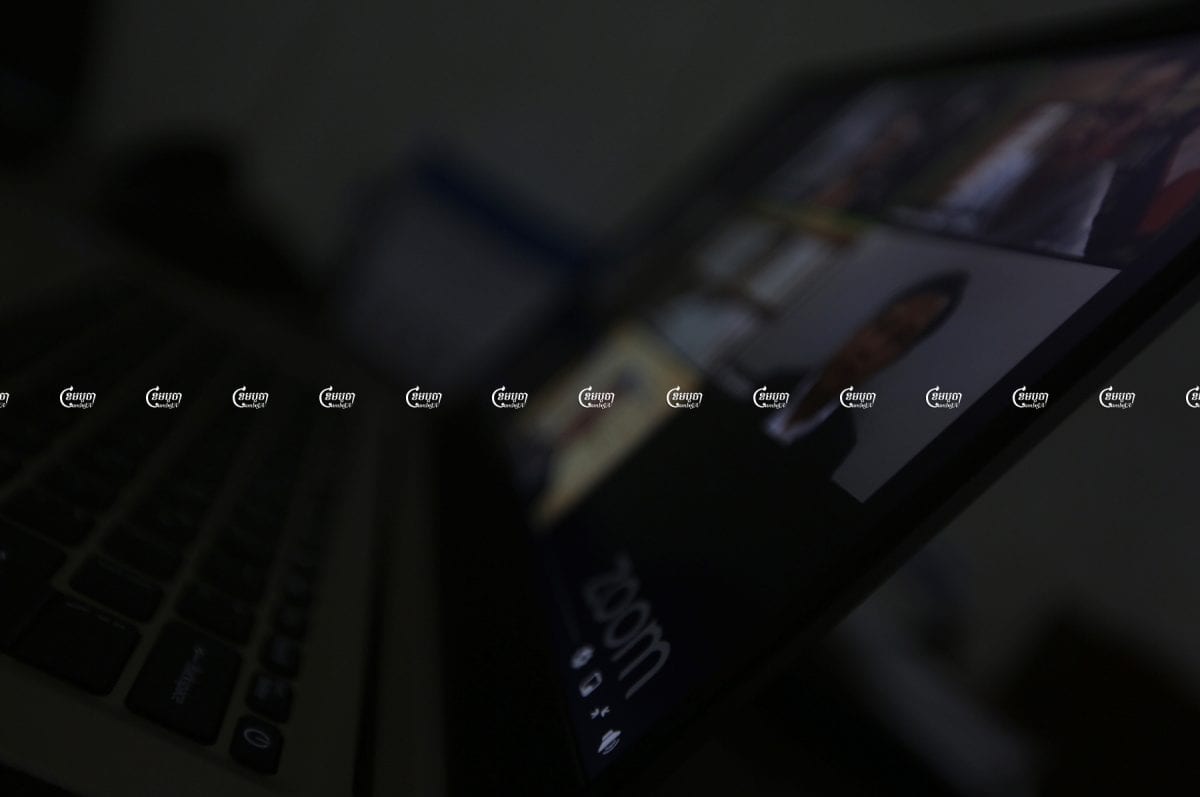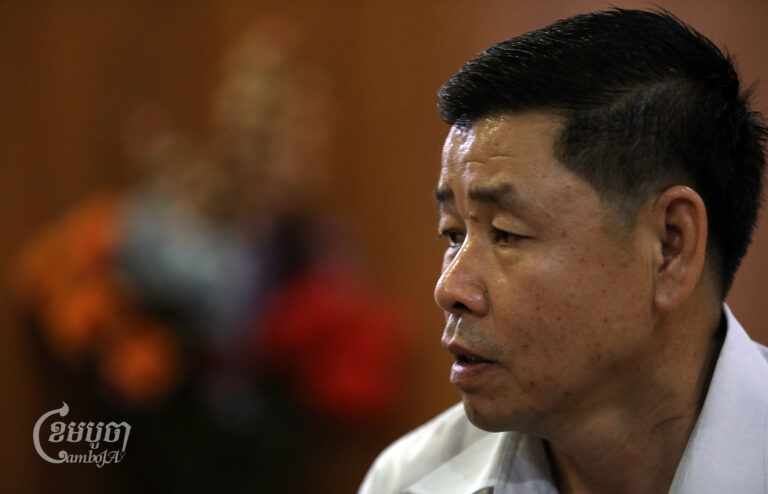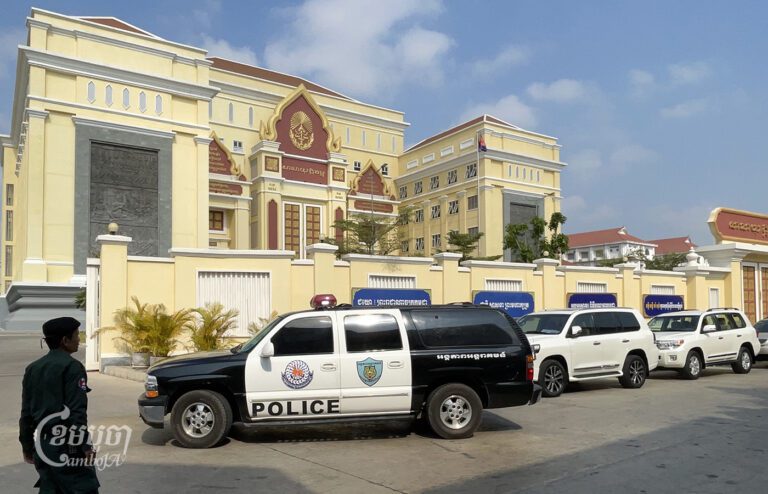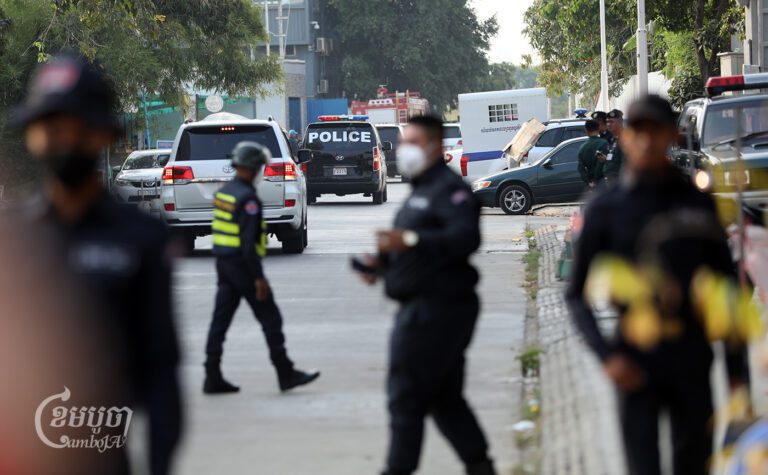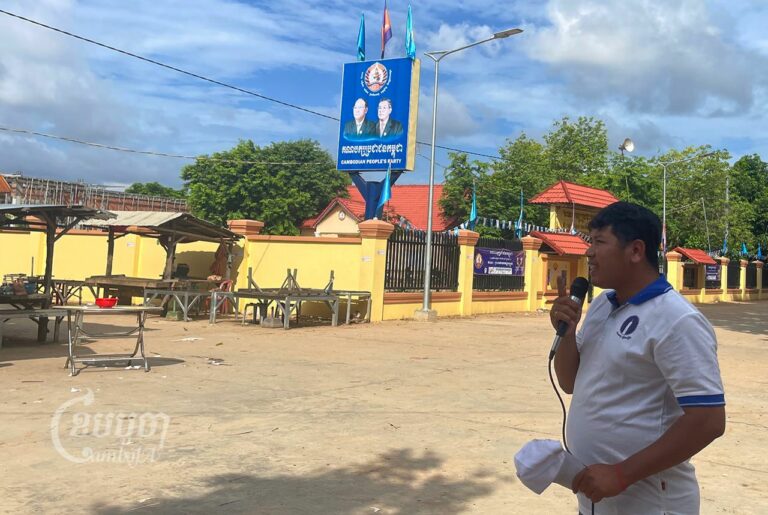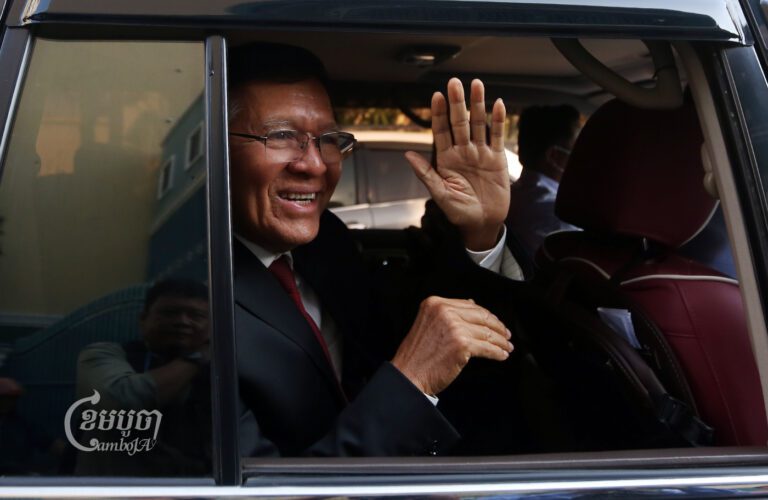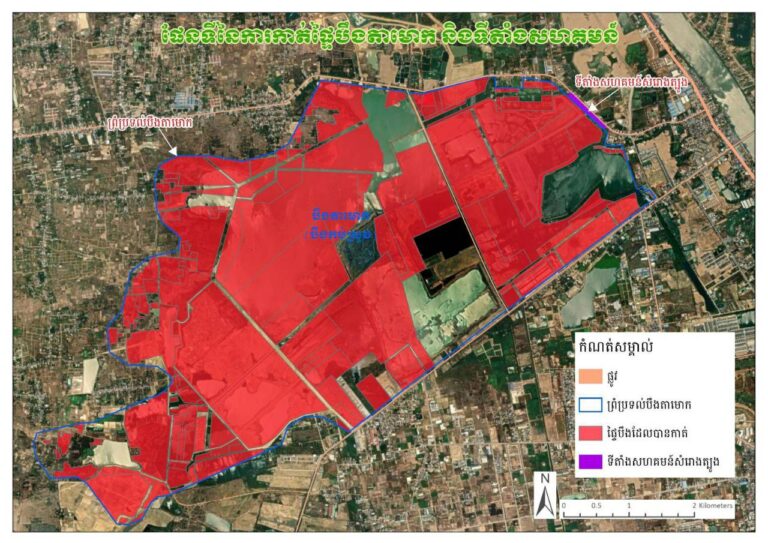As authorities jail multiple activists for their online speech, rights groups and civil society members are decrying the government’s digital surveillance and criminalization of speech.
About two weeks ago, officials arrested three members of the environmental protection group Mother Nature and later used a video clip allegedly taken from an online Zoom meeting and posted to social media to charge the activists with plotting and insulting the king. Last week, the 16-year-old son of a former CNRP official was charged with incitement and insulting public officials while chatting on the Telegram messaging app.
Cheang Ly, a member of the environmentalist Prey Lang Community Network in Stung Treng province, told CamboJA that she’s concerned her group could be targeted with similar tactics of eavesdropping and official accusations.
“For me, I am worried because our team always holds online meetings to discuss environmental issues and illegal logging,” she said, adding that the network regularly uses popular messaging apps to communicate. “We are worried that when we are talking about this issue, they will accuse us of being political.”
Chak Sopheap, executive director of the Cambodian Center for Human Rights (CCHR) said the Cambodian government has over the past few years significantly expanded its legal arsenal, adopting measures that grant it overbearing surveillance powers with minimum oversight.
“Recent developments have shown these legislative instruments have frequently been misused to target government critics, confirming human rights groups’ fears that these instruments are governmental tools for oppression,” Sopheap said.
Digital security trainer Ngeth Moses said internet users can reduce their risks online by only using licensed applications and programs on their devices, as well as regularly updating operating systems to the latest versions. Moses, who writes about online security on his blog, also recommended using a VPN, or virtual private network, to safeguard their data from those who would harvest it, whether for commercial or political ends.
A CCHR polling effort from December 2020 found that 52 percent of all 790 respondents across the country said they felt somewhat unfree to speak on social media. A poll from October found that 40 percent of leaders from 178 included civil society or trade union groups said that a government official had monitored or surveilled their organization’s activities in the past year.
The survey suggested 75 percent of them felt this monitoring was excessive or interfered with their groups’ activities.
Sopheap said the figures are in line with trends from previous years and, as elections approach in 2022 and 2023, she fears the surveillance crackdown will increase considering the government’s intolerance to criticism and tendency to repress dissenting voices.
Sopheap said the government would do well to remember that all human rights must apply equally offline and online.
“We urge the government to cease its targeting and silencing of critical voices and to put its powers to good use rather than abuse them for its own benefit,” she said.
In 2017, former opposition CNRP president Kem Sokha and other opposition officials were secretly recorded on phone conversations and accused of holding extramarital affairs. Last year, human rights activist and Buddhist monk Luon Sovath was the subject of an apparent disinformation campaign driven by government-affiliated individuals using information taken from private communications.
There are signs indicating the CPP-dominated government intends to further tighten its grip on digital speech. On February 16, Prime Minister Hun Sen signed a sub-decree calling for the creation of a single national internet gateway to control the flow of Cambodia’s online traffic.
According to the sub-decree, the gateway will require internet service providers to provide a monthly, quarterly and yearly report to the government and grant it the right to monitor a company’s infrastructure and equipment.
The UN’s newly appointed special rapporteur to Cambodia, Vitit Muntarbhorn, in May raised concerns over the sub-decree. The US Ambassador Patrick Murphy told CamboJA this month that the US has also been in discussions over Cambodia’s controversial National Internet Gateway, encouraging the Cambodian authorities to consult with the public to include freedoms of expression.
Ministry of Justice spokesman Chin Malin stood by the government’s digital crackdown, saying that some nongovernmental organizations link illegal acts to politics and human rights.
“Private conversations should not affect the social order and national security,” he said. “So, if they use the right of private conversation to threaten national security, there is not a privacy right anymore. When it comes to incitement, the law could not protect them.”
Malin said when conversations leak through social media, the authorities can take them as basic evidence to use in criminal investigations.
Government spokesman Phay Siphan said some leaked information may come from group members themselves but told CamboJA he didn’t know how the conversation became public.
“It does not violate their private rights, but it violates the law,” Siphan said.
Am Sam Ath, deputy director of monitoring at the human rights group Licadho, said the government has increased its scrutiny on social media criticism as people increasingly use such platforms. Sam Ath explained the government does have some powers of digital surveillance but he rejected its use of tracing on critics and political activists.
“We acknowledge that the law allows the authorities to trace or surveil only criminals and those who are suspected of links to crime, or terrorism suspects who seriously threaten national security,” he said. “But that does not mean they can surveil all individual conversations because it violates privacy. We believe that when the government does this, there will be more criticism from the public or international community over the government’s oppression of the freedom of expression.”


